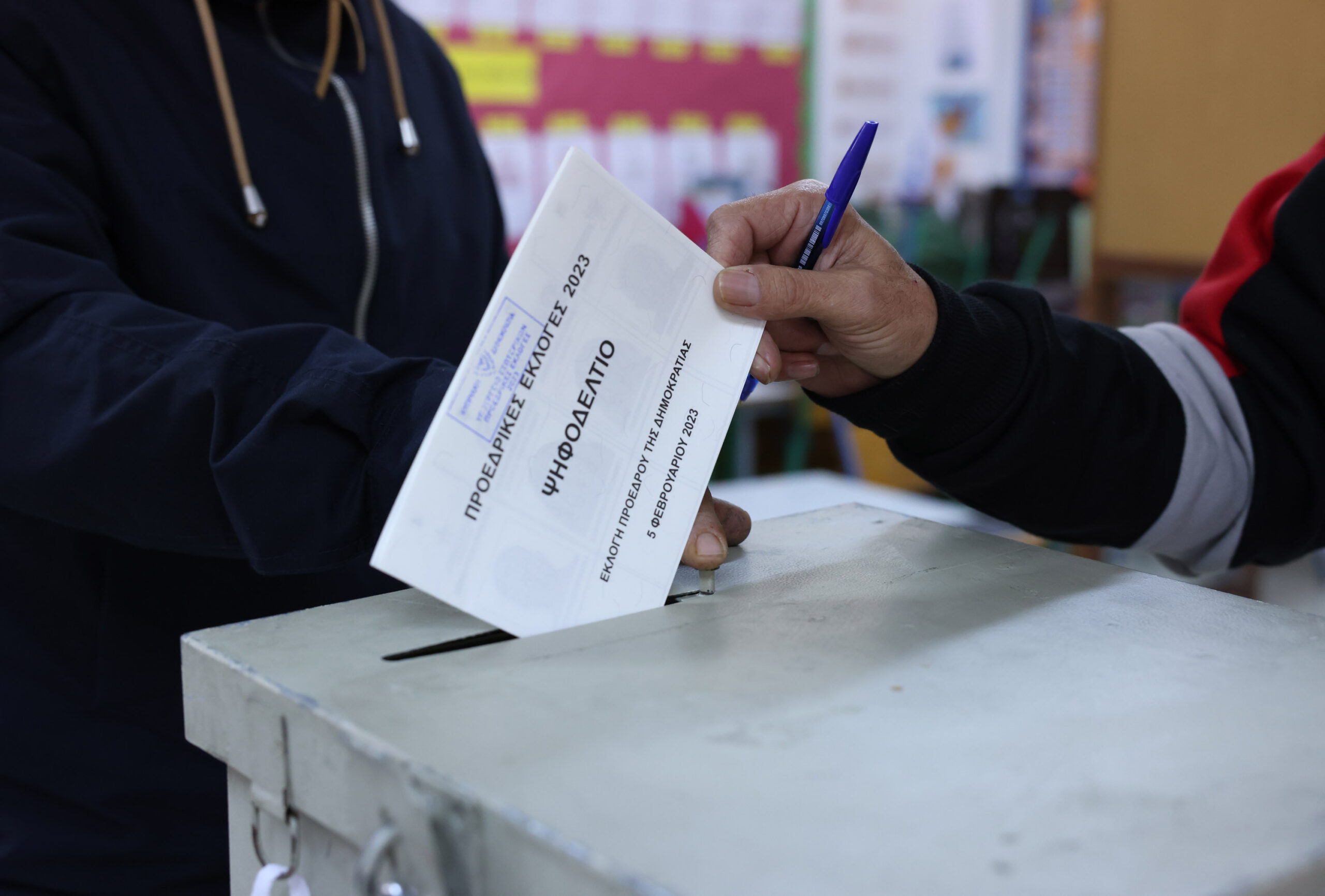With ruling conservatives DISY out of the presidential race for the first time in its history, their decision not to back either candidate has thrown Sunday’s runoff wide open.
“The results from last Sunday and the developments have changed the dynamics.
“I expect a close result, and either of the candidates can win,” said Hubert Faustmann, a politics and history professor at the University of Nicosia.
“The choices of the DISY supporters will decide this election,” he added.
Cypriots in the divided island’s south will vote again Sunday for a new president, with the two finalists trying to prove their credentials to govern independently of their party backers.
Cyprus’s former foreign minister Nikos Christodoulides faces career diplomat Andreas Mavroyiannis in a second round of presidential elections on 12 February after neither secured a majority last week.
The winner will succeed two-term President Nicos Anastasiades as the republic’s eighth president.
Pre-poll favourite Christodoulides led a close-fought contest with 32.04 percent of the vote, followed by Mavroyiannis with 29.59 percent.
He unexpectedly squeezed out Averof Neofytou, leader of DISY – the island’s largest party – who trailed in third with 26.11 percent.
Despite being endorsed by the incumbent, the seasoned politician is the first DISY candidate not to progress from the first round in the party’s history.
Mavroyiannis, a 66-year-old technocrat backed by the communist party AKEL, had surprised observers by pipping Neofytou, 61, and closing the gap with the 49-year-old centrist-backed Christodoulides.
“The dynamics are currently favouring Mavroyiannis because the anger in DISY over the result seems to be bigger than their dislike for AKEL.
“The elections will be decided by the bulk of DISY voters who must choose between the candidate of their political and ideological archrival AKEL and the defector responsible for their worst result in modern history,” said Faustmann.
Opposition
Earlier this week, a DISY party meeting decided not to endorse any candidates but to declare itself an opposition party.
Neofytou felt betrayed by Christodoulides, who, as a senior DISY member, broke ranks to declare his candidacy instead of following the party line.
In a bid to mend fences with DISY, Christodoulides had offered a “significant role” for the party in his government if elected.
But Neofytou told the party faithful at the meeting: “History might forget heroes, but it never forgets traitors”.
Every vote counts in such a close contest, and extreme right-wing party Elam could play a crucial role; it secured fourth place with their candidate, party leader Christos Christou, garnering six percent.
Faustmann said this puts Elam in the conversation in electing the next president.
“The other decisive dynamic will be the role of Elam.
“Their voters are very likely to support Christodoulides, but what will Christodoulides offer them in return?
“A position in the cabinet would probably cost him more votes than he would gain,” said Faustmann acknowledging that other parties backing Christodoulides reject Elam.
Although Mavroyiannis could upset the odds, he must convince voters that AKEL will not be in charge of economic policy.
The communists are widely blamed for the 2013 financial crisis, which almost bankrupted a eurozone country before a bailout from international lenders.
Under the terms of the harsh bailout, the island’s second-largest bank Laiki was shuttered.
“Mavroyiannis needs to convince the public through the choice of a trusted finance minister that his rule would not mean AKEL economic policies which destroyed the country in 2013.
“There is overwhelming consensus from that experience that AKEL should not have its hand on economic policies,” said Faustmann.
On Wednesday, Mavroyiannis took the unusual step of naming his future finance minister if elected.
He announced the respected UK-educated lawyer Charalambos Prountzos, an expert in corporate and energy law.
“My choice of finance minister is a self-made professional from the field of business. With rich experience in legal issues related to energy,” said Mavroyiannis.
Rooting out corruption and improving the economy – rather than the island’s division — have been major issues for the country’s 561,000 registered voters.
Cyprus has been divided since 1974 when Turkish forces occupied the island’s northern third in response to a Greek-sponsored coup.
The new government will be under pressure to address higher energy prices, labour disputes and a struggling economy amid a global recession.
Another issue for the next president will be restarting peace talks with the self-proclaimed ‘Turkish Republic of Northern Cyprus’, frozen for nearly six years.










